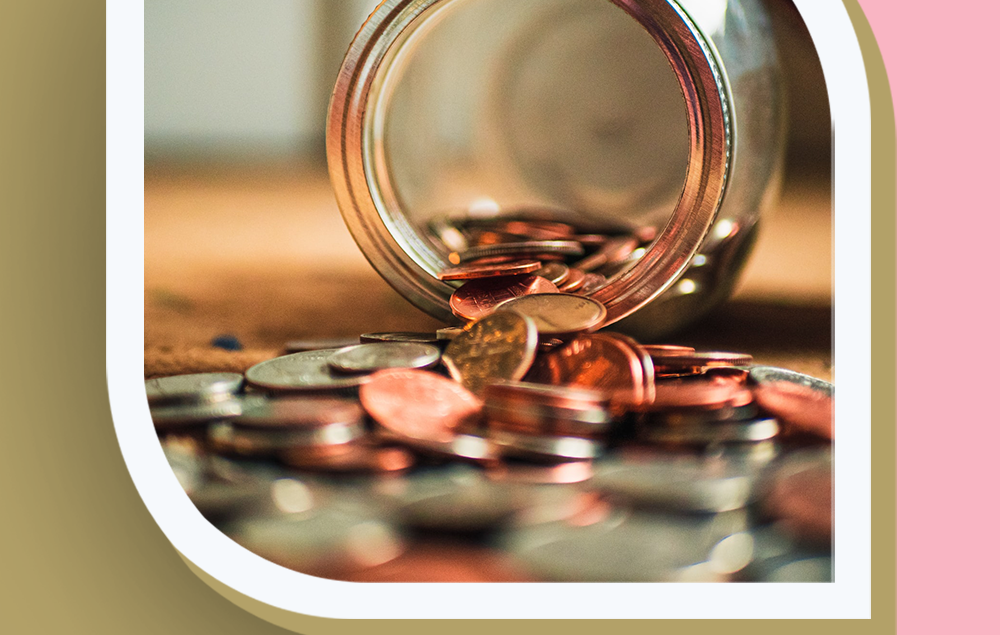
Picture your credit score as the backstage pass to your financial concert. It's not just about digits, it paints the larger portrait of your credit standing, representing the nuances of your financial choices and rhythms.
A strong credit standing can set the stage for incredible opportunities. But here's a common refrain: to earn a good credit score, one must tread the path of debt.
Is that always the tune we need to dance to if we want to improve available credit and build credit scores and creditworthiness with the credit bureaus? Let's take a closer look and see how to begin building credit and protecting your personal finance future without diving deep into debt.
How Can I Build Credit Without Debt?
In Canada, your credit history is a pivotal factor influencing your financial well-being. It's a comprehensive record of your credit usage, encompassing details about your credit accounts, payment history, and credit limits. Credit scores, calculated by credit bureaus like Equifax and TransUnion, condense this information into a numerical representation that lenders use to assess your creditworthiness.
A key element in managing credit is understanding and optimizing your credit utilization, the ratio of your credit card balances to your credit limits. Maintaining a low credit utilization is crucial for a positive credit score. If you're building or rebuilding credit, a secured credit card can be a valuable tool. It requires a security deposit, often establishing a lower credit limit, making it accessible for those with limited credit history or past challenges.
Payment history is another critical aspect of credit management. Timely payments contribute positively to your credit score. For those aiming to boost their credit, a credit builder loan can be beneficial. It's designed to establish a positive payment history, demonstrating to credit card companies and lenders that you can manage credit responsibly. Regularly checking your credit report for accuracy ensures a clear understanding of your credit health, empowering you to make informed financial decisions.
Building credit history doesn't always necessitate the possession of a credit card. There are several paths to improving your credit scores without resorting to traditional credit cards:
Timely Bill Payments: In the mosaic of credit-building, every piece matters. Being diligent with your utilities, phone bills, and rent payments might not directly contribute to your credit score, but missed payments can harm it. Establishing a track record of on-time payments sends positive signals to potential lenders about your financial responsibility.
Preserve Old Accounts: There's wisdom in age - and this applies to your credit accounts too. Retaining older accounts, even if dormant, contributes to boosting credit history. A more extended credit history can paint you as a more trustworthy borrower in the eyes of lenders and give you a higher credit limit to work with and utilise.
Secured Loans & Credit Builder Loans: These tools serve as an excellent alternative for those looking to steer clear of credit cards but still yearn to prove their fiscal reliability. Tailored to help individuals establish or rebuild their credit, these loans can be a game-changer. You can improve your credit score and boost credit reporting agencies view of your creditworthiness.
Open a Line of Credit with KOHO: Venturing into credit-building has never been more user-friendly than it is with a credit builder loan or secured prepaid credit card. WithKOHO's credit-building options, you improve your credit standing with the credit bureau without venturing deep into the traditional credit card realm and risk going into debt.
Embracing these strategies not only ensures you're on a path to robust credit health but also offers flexibility in how you choose to achieve it while also improving your credit limit and raising your credit score on your credit report. You can improve your standing with Canadian credit bureaus and utilize secured loans and secured credit card options in the most efficient way possible.
How to Get a Credit Card Account in Canada
Acquiring a credit card in Canada isn’t merely about accessing a line of credit. It’s an emblem of one’s dedication to improving credit standing and managing financial health with prudence. When navigating the application process for a credit card, it's pivotal to be aware of several key facets to ensure you're making a well-informed decision.
Application Process: Researching the plethora of card offers is your first step. Comprehending the specifics of each can illuminate your path. While you might wonder about the challenges faced by first-timers, the intricacies ofsecuring that initial credit card can offer insights.
Determining Factors: Beyond the numerical value of a credit score, lenders delve into various facets of your financial life. Factors such as your income level, prior credit history, and employment status come under scrutiny, providing a preview of your financial reliability.
Choosing Wisely: Being discerning about the card’s fees, interest rates, and credit limits can be the difference between a comfortable financial journey and a challenging one. Especially if it's yourfirst credit card, understanding these nuances is paramount.
How Often Does Your Credit Score Update?
Your credit score isn't static – it's dynamic and can fluctuate based on various activities. In Canada, credit scores are updated generally every 30 to 90 days. Here's the breakdown:
Update Frequency: Credit reporting agencies, like Equifax and TransUnion, refresh your scores as they receive new data.
Impactful Activities: Actions like loan applications can temporarily "ding" your score. Conversely, consistent on-time payments can lead to gradual improvements.
How is Credit Score Calculated?
Peeling back the layers of your credit score reveals a meticulous system that assesses various facets of your financial behavior.
In Canada, this three-digit number is derived from an intricate mix of elements, each reflecting a unique aspect of your financial past and present. Let's break down the components:
Payment History (~35%): This takes the lion's share. It factors in your diligence in paying bills, any missed payments, and the days they were overdue. Interestingly, just making the minimum payment on your credit card is sufficient to ward off negative effects on your score.
Credit Utilization Rate (~30%): This represents the proportion of credit you're using compared to what's available to you. Holding large balances can shrink your score, while maintaining a modest balance might elevate it. Fresh loans with a nascent payment history can temporarily dent your score. A golden rule to remember is to keep your utilization under 30% to optimize this segment of your score.
Length of Credit History (~15%): This gauges the duration of your credit accounts and the activity within them. A longer, active history with your credit card account tends to be more favorable to show you can be trusted to manage your money responsibly.
Types of Credit (~10%): Diversity is the spice of life and of your credit mix. A varied blend, incorporating both installment loans and revolving credit, is ideal. Monthly bills, major payments, and personal loan payments all can help contribute to your credit scores and improve your credit standing.
Credit Inquiries (~10%): Every time you apply for credit, an inquiry is logged on your credit reports. An abundance of requests in a short span can portray you as financially distressed. Hence, it's prudent to be judicious about the frequency of your credit applications.
Understanding these components and their weightage can offer strategic insights into maintaining or even boosting your credit standing in the Canadian financial ecosystem.
To further contextualize your own score, it's essential to recognize what constitutes agood credit score in Canada. Being informed allows you to set achievable goals for establishing credit worthiness and work towards a financially secure future.
KOHO Credit Building Card
Strengthening your credit profile is not just about owning a card, it's about understanding and adopting the right strategies to ensure sustained financial health, credit history, credit report points, and increased available credit limit.
For those interested in improving credit without debt, KOHO's innovative credit-building program and credit account options offer a refreshing alternative distinct from traditional cards.
Why is this so pivotal? A robust credit score equates to lower interest rates, which can translate to substantial savings over time. Credit bureaus use your credit history and scores to determine your creditworthiness for future loans, interest rates, and other financial options.
Imagine the benefit of saving money on a loan solely due to a favorable credit score! KOHO's credit-building approach provides two primary pathways:
Credit Building: Utilize a KOHO line of credit to start your journey of credit enhancement and get some positive payment records on your credit report.
Flexible Credit Building: Opt for a more tailored approach using a secured line of credit and build your credit report to boost your credit scores.
The standout feature of KOHO's program is its simplicity and accessibility. There are no initial deposits, exhaustive credit checks, or cumbersome applications. And with guaranteed approval, it ensures that Canadians can embark on their credit improvement journey seamlessly.
It’s a model of financial empowerment for the modern Canadian, emphasizing credit growth without the pitfalls of debt. Register today and start building your perfect credit score. Let KOHO show you how to build credit and prove your creditworthiness with credit bureaus and your credit card company. Start the journey today!

About the author
Nick is a freelance writer and entrepreneur with a particular interest in business finance. He's been featured in publications like Popular Mechanics and Apple News
Read more about this author